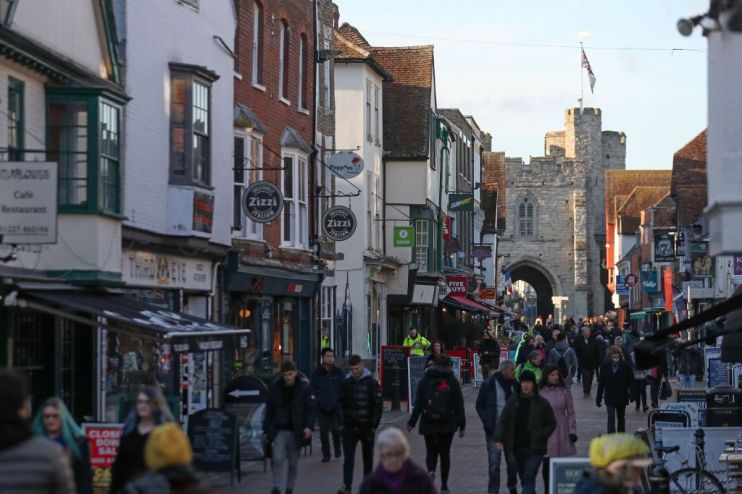Brits cling onto pandemic savings amid economic uncertainty

Brits are clinging on to their pandemic saving war chests in a sign that the UK could be headed toward a recession this year, reveals official figures published today.
Rampant inflation is failing to push households into drawing down money set aside during lockdowns, suggests data from the Bank of England.
Savings – including those deposited in the government-backed National Savings and Investment scheme – jumped £6bn between February and March.
The inflow into bank deposits has swelled the stock of excess savings since the start of the pandemic to just over £186bn, according to calculations by Samuel Tombs, chief UK economist at Pantheon Macroeconomics.
Concerns about a coming slowdown in the UK economy may be incentivising households to exercise greater caution.
Consumer confidence has plunged to the second-lowest level on record, according to research firm GfK.
However, reluctance to tap into pandemic savings is likely to add to the headwinds buffeting the economy, raising the risk of a recession – defined as two consecutive quarters of contraction – this year.
Consumers tend to rein in spending and leave rainy-day money untouched during periods of higher economic pessimism. The UK relies on consumer spending to generate around 60 per cent of output.
“Households’ continued unwillingness to touch the savings they accumulated during the pandemic suggests that real expenditure is set to fall in [the second quarter] in response to the squeeze on disposable incomes,” Tombs added.
UK living standards are forecast to erode at the steepest pace in 66 years in 2022 as a result of wages lagging a more than seven per cent annual inflation rate, according to the Office for Budget Responsibility.
This means consumers will be unable to maintain spending levels unless they use savings or borrow.
“Households will increasingly take on debt as high inflation squeezes real incomes – especially in the form of credit card borrowing,” Martin Beck, chief economic adviser to the EY Item Club, predicted.
Bank of England data shows consumers took on £800m of credit card debt in March, a more than 10 per cent rise over the last year, indicating households are using riskier debt to meet spending commitments.
However, the annual increase may have been skewed by the UK still being in the teeth of Covid-19 restrictions in March 2021.